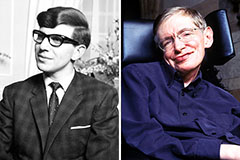While lotteries provide pleasure and excitement to countless people, additionally they carry their fair share of controversies and concerns. Critics argue that lotteries mostly target low-income neighborhoods, where the allure of a possible jackpot can lead to financial hardship for weak individuals who invest a substantial section of these income on tickets. Moreover, reports of lottery champions who squander their newfound wealth or have problems with unforeseen effects function as cautionary tales. However, lotteries have also played a vital position in funding community services and charitable causes in many countries, adding to knowledge, healthcare, and different necessary programs.
Intriguingly, the psychology of lottery participation is just a subject of ongoing research. Why do people continue steadily to take part in lotteries despite knowing the astronomical chances against earning the jackpot? Some psychologists declare that the expectation and daydreaming that are included with buying a solution might provide emotional price even though the reward remains elusive. The others point out the sense of neighborhood and provided enjoyment that lotteries build, as buddies, family, and co-workers frequently pool their resources to buy passes together.In conclusion, lotteries are a exciting and complex sensation that reflects the human want for a life-changing stroke of chance and the difficulties and honest concerns encompassing gambling. Whether viewed as a fascinating sport of opportunity, a way of funding community solutions, or even a matter of academic inquiry, the lottery remains a subject of enduring interest and fascination in groups around the world.
A lottery is really a amazing and ubiquitous concept that has caught the imagination of folks from all guides of living across the world. At their core, a lottery is really a game of opportunity, an interesting risk that gives participants the tantalizing possibility of a life-changing windfall. Whether it's the assurance of winning thousands in a multi-state Powerball drawing, the quick pleasure of damaging down a ticket to disclose a treasure, or the day-to-day anticipation of a local pick-six sport, lotteries undertake many types and variations, each with its special allure. Why is lotteries specially interesting could be the idea that anybody, regardless of their background or financial situation, may become an over night millionaire. The pleasure that builds while the numbers are attracted or the scratch-off layer is eliminated is really a testament to the enduring attraction of lotteries. However, along side the dreams of riches, lotteries also raise issues in regards to the integrity of gambling, the affect individuals and society, and the stark comparison between people who win and those that don't. It's an bandar togel online that encompasses psychology, mathematics, economics, and sociology, creating the lottery a interesting and complex sensation that remains to put on their invest the international desire for chance and fortune.
Lottery, a form of gambling deeply ingrained in individual tradition, presents both the attraction of opportunity and the desire of quick wealth. It is just a sport of fate, where members purchase passes with the hope that their picked figures will match those attracted at random, thereby giving them access to life-changing fortunes. Lotteries come in different forms, from old-fashioned draw-based lotteries like Powerball and Super Thousands to scratch-off seats giving instant gratification. The concept of the lottery has an abundant history, with sources dating back to historical civilizations including the Chinese Han Empire, the Roman Empire, and the Italian Renaissance. Today, lotteries are a global phenomenon, giving individuals a fabulous picture at escaping financial hardship, achieving their desires, or just encountering the exhilaration of endangering a tiny sum for the opportunity at a windfall.
 Haley Joel Osment Then & Now!
Haley Joel Osment Then & Now! Erik von Detten Then & Now!
Erik von Detten Then & Now! Daryl Hannah Then & Now!
Daryl Hannah Then & Now! Stephen Hawking Then & Now!
Stephen Hawking Then & Now! Peter Billingsley Then & Now!
Peter Billingsley Then & Now!